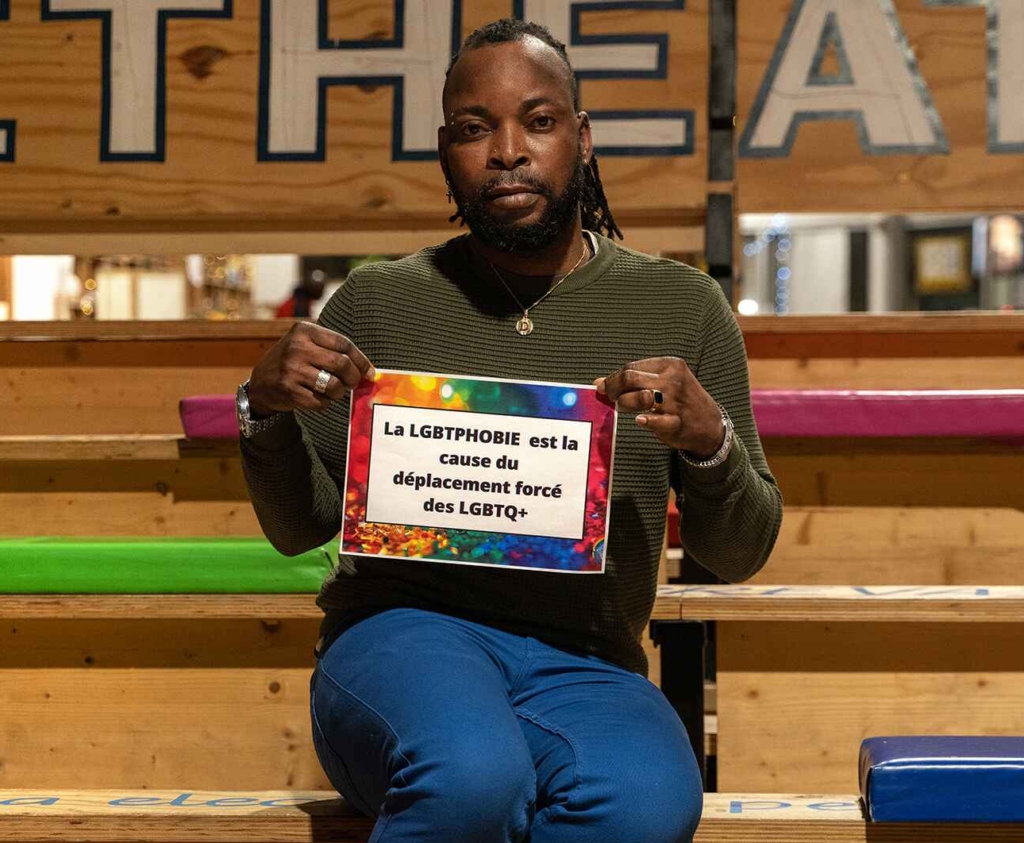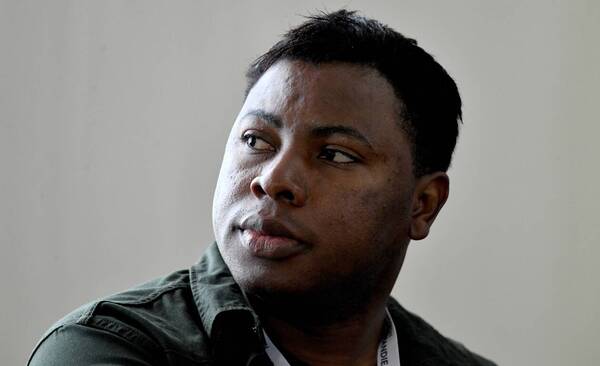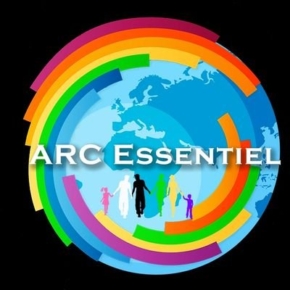Arc Essentiel provides a lifeline for LGBTQ+ refugees in France
Moïse Manoël-Florisse, is an African-Caribbean online journalist keeping an eye…
‘As soon as asylum seekers are granted refugee status, they feel a bit lost.’

After struggling through his initial years living as a refugee in Paris, Thomas O. founded Arc Essentiel as a peer mediation association for LGBTQ+ refugees. Now, after just a few years of operation, Arc Essential has already become a key resource for queer refugees struggling to access aid and services in France, having helped 260 people in 2022 alone.
Erasing 76 Crimes spoke with Thomas O. about his journey to France from his native Cameroon, how current support structures fail LGBTQ+ refugees, and what work can be done to promote greater acceptance of LGBTQ+ people in their countries of origin.
Thomas O. : I’ve been an activist for LGBT+ rights and against HIV/AIDS since 2010. I started my activism in my home country of Cameroon with Affirmative Action, before working for Enfants d’Afrique to stop violence against minors. This organization also had an HIV prevention component for teenagers. Later, my activism took on yet another dimension when I was elected as a representative of organizations working with key populations, starting in 2015. Since 2017, my life turned upside-down when I made the choice to seek asylum in France, where for the past 6 years, I’ve been campaigning as an LGBT+ refugee for other LGBT+ refugees.

76crimes: Why did you choose France?
Thomas O. : I left Cameroon because of the persecution I faced. Eric Ohena Lembembe (a journalist [for Erasing 76 Crimes] and human rights defender committed to protecting the rights of LGBT+ people) was murdered in 2013 and the threats against me have never stopped since. In addition, there was pressure from those around me and I could no longer live in hiding. All this contributed to my leaving Cameroon.
When I arrived in France, I immediately applied for asylum at Charles De Gaulle airport, where I was interviewed in the waiting area. I was then given an 8-day safe-conduct to go to the prefecture to lodge my application. It was accepted a year later when I was recognised as a refugee in 2018.
76crimes: What did you do during the year it took to examine your case?
Thomas O. : For a year, I couldn’t work, because that’s what it says on the asylum application certificate. So I was a volunteer with the Catholic Relief Service in Bondy, where I worked with vulnerable people. We helped people in difficulty with food kits or gave cheques to people in fuel poverty in winter.

Looking back, I’d say that volunteering enabled me to familiarise myself with the customs and culture of the host country, and I was able to put that in a positive light. However, it was when I obtained my refugee status that the difficulties began. First of all, I had to find accommodation and, at the same time, a job. The recognition of diplomas is one of the most problematic points for a refugee. For example, I passed the entrance exam to train as a social worker. However, by the time I got my Cameroonian diploma recognised, the training course had already started.
As far as housing is concerned, I was lucky enough to benefit from a partnership between [LGBT advocacy organization] ARDHIS and [social housing provider] Adoma. And more than once, what has saved me from the street in France is the fact that I have a sister living here or the fact that I’m in a couple. However, temporary accommodation is not always the best experience …. I had to struggle in the midst of homophobic people and drug addicts. Indeed, on several occasions, I lodged complaints or reports. Today, however, I have been able to become a social and cultural mediator at the Point d’Information et de Médiation Multiservices (PIMS) in Paris, where I really enjoy myself.
76crimes: What led you to set up Arc Essentiel?
Thomas O.: Asylum seekers benefit from a great deal of support when they arrive in France, but as soon as they are granted refugee status, they feel a bit lost. Also, once they arrive in Europe, LGBT+ refugees experience rejection within their own communities of origin, an experience that is common to everyone, whether they are Afghan, Latin American or African.
So during the March 2020 lockdown, I used my free time to think about a peer support association for asylum seekers and refugees, because this was something that didn’t exist at all. But we need social innovation.
So when I ask people who come to see us if the social worker knows that they are homosexual, I realise the extent to which the unspoken and the omissions totally skew the support given to this public in difficulty. But at least, in our offices at the Maisons de la Vie Associative et Citoyenne in the 14th arrondissement, they can express themselves openly. And if necessary, we redirect them to gay-friendly structures and partners that are better suited to their needs.
76crimes: What are your activities?
Thomas O.: In the future, we’re also thinking about raising awareness among LGBT+ community organizations about support for gay and lesbian or transgender migrants. However, for the time being, we’re focusing more on applications for residence permits and registration with the [French unemployment agency] Pôle-emploi for the people we monitor.
For example, if the exiles obtain refugee status, we will help them apply for the Revenu de Solidarité Active [a social benefit for working adults], or the local mission for minors. We also offer advice and support for all housing applications, as soon as our clients obtain a certificate of extension of their initial application for a residence permit.
Finally, we work on professional projects or plans to return to education. We are constantly providing help and guidance. In 2022, we welcomed nearly 260 people, which is already very encouraging.
76crimes: Are you concerned about human rights in the countries of origin?
Thomas O.: Yes, of course. In particular, the LGBT+ diaspora has a role to play in the universal decriminalisation of homosexuality. Through our voices as exiles and refugees, we enable our interlocutors to get to grips with the burning realities of the rule of law in our countries of origin, where mentalities are often retrograde. More than ever, our voices are needed to make our homophobic compatriots living in Europe understand that homosexuality is not a Western import. Moreover, this homophobia illustrates the fact that some people have no place in a country whose values of tolerance and acceptance of others they trample underfoot.
To contact Thomas O. , click here.
Arc Essentiel’s offices are open every Wednesday from 6:30pm to 9:30pm, and on Saturdays from 11am to 6pm, at the Maison des réfugiés, 50 Boulevard Jourdan, Paris.




